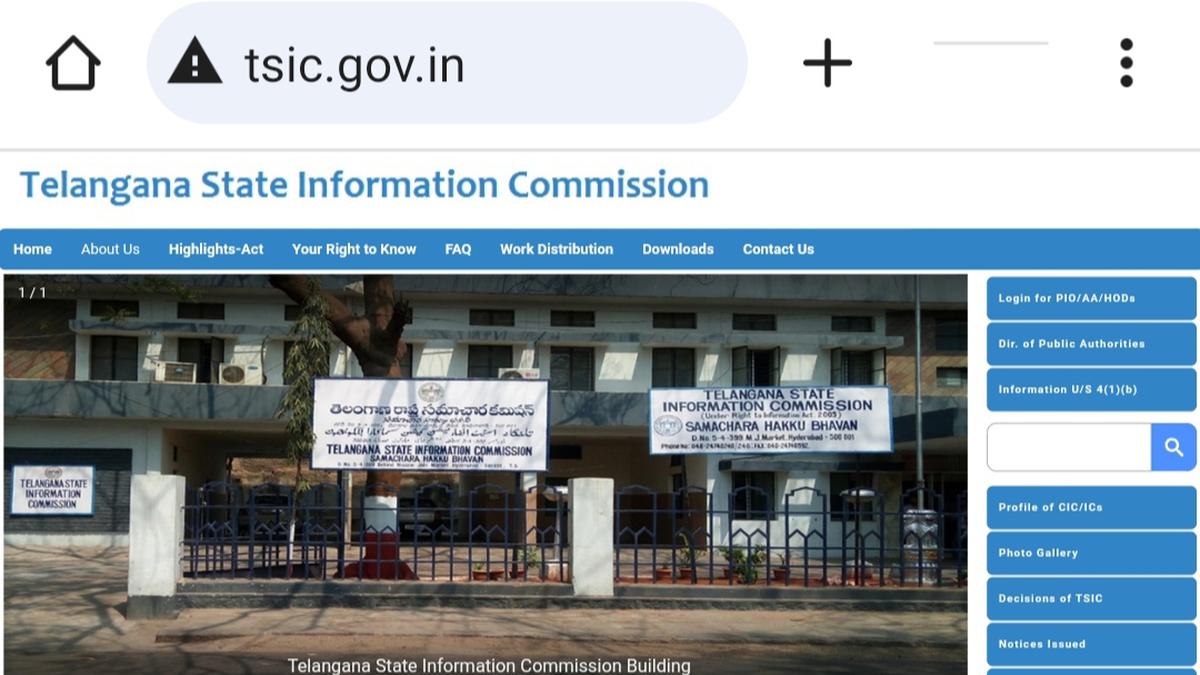Telangana State Information Commission not reconstituted for several months, case backlog stands at over 9,000

December 16, 2023 01:02 pm | Updated 02:19 pm IST - Hyderabad The Telangana State Information Commission (TSIC) has not been re-constituted since February 26, 2022, slamming the brakes on Right to Information (RTI) appeals and complaints, and creating a backlog of a few thousand cases. According to information obtained under the RTI Act by Kareem Ansari, a Hyderabad-based RTI activist from the yourti.in portal, the posts of Chief Information Commissioner and five State Information Commissioners, who were entrusted to deal with appeals and complaints connected to various government departments, have remained vacant since September 26 last year. The previous State Information Commissioners — Gugulothu Shankar Naik, Syed Khaleelullah, K Shekhar Reddy, Myada Narayan Reddy, and Mohd Ameer Hussain — passed directions or disposed RTI appeals, in an effort to ensure transparency under the RTI Act. The Chief Information Commissioner, holding full additional charge, was Buddha Murali who demitted office on September 25 last year. Gathering dust The previous government did not reconstitute the commission creating a backlog of RTI appeals that has accumulated with each passing month. According to the data, till September this year, the backlog stood at 9,014. “RTI is crucial for good governance and transparency. The reconstitution of the TSIC is important. The situation at the Information Commission is not very promising with large number of cases pending. Unless there is a regular hearing by a full panel of commissioners, there will not be a reduction in backlog. We had been raising the issue of backlog when the BRS government was in power as well,” Mr. Ansari said. Information seekers and RTI activists, in the past, had flagged instances in which despite the TSIC issuing directions to furnish data, the departments concerned did not comply. In other instances, replies from departments to which RTI queries were sent simply did not come. This led applicants to prefer appeals. In August this year, the Telangana government’s online RTI portal went live. But, a few hours later, a pop-up on the website claimed that the portal was “temporarily unavailable due to essential training activities for Public Information Officers, Appellate Authorities, and new Public Authorities’ registration process”. Interestingly, TSIC staff too was unaware of the portal going live. With the new IT Minister, Duddilla Sridhar Babu, signing a file which fast-tracked the online portal going live, activists and other RTI applicants had reason to cheer. Another function of the TSIC is the preparing annual reports of the commission. These reports are then sent to the State government for tabling. Once tabled, they are then released to the public. The annual reports throw light on the implementation of RTI Act.